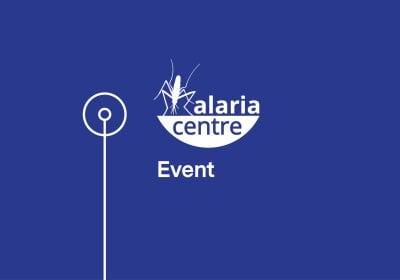The enduring importance of bed nets for the control of malaria
Longitudinal perspectives and trial results for the next generation of nets
Bed nets are the cornerstone of the current fight against malaria, responsible for two-thirds of the reduction in burden over the last decades. Whilst the latest vaccine developments are encouraging, malaria will not be beaten by one intervention alone and vector control remains a vital component. Sleeping under bed nets is highly effective because in the majority of malaria-endemic regions of the world, the female mosquito that transmits malaria only bites at night.
Together with long-term usage, it is critical research into nets keeps one-step ahead of insecticide-resistance. Resistance is known to affect all classes of insecticides currently being used, and some mosquito populations may be resistant to multiple insecticides. These presentations will cover both the latest developments in net innovation, alongside results from a longitudinal study following net usage from infancy to adulthood.
Talk titles
- Mosquito net use in early childhood and survival to adulthood in Tanzania by Professor Joanna Schellenberg, LSHTM
- Effectiveness of three types of dual active ingredient treated nets compared to pyrethroid long lasting insecticidal nets against malaria in an area with pyrethroid-resistant mosquitoes in Tanzania by Dr Nancy Matowo, LSHTM and Dr Jackie F Mosha, National Institute for Medical Research, Mwanza, Tanzania
Speakers
- Professor Joanna Schellenberg, Professor of Epidemiology & International Health, LSHTM
-
Joanna focuses on the development and evaluation of public health interventions for newborn, infant, child, and maternal survival in low- and middle-income countries, including evaluation of equity as well as effectiveness. She was based in Tanzania for 9 years and has been involved in collaborative research with Ifakara Health Institute since 1992. Joanna has a particular interest in quality improvement in health care, in community-based interventions, in programme design for both sustainability and scale, and in embedding capacity development in global health research studies.
- Dr Nancy Matowo, Research Fellow in Medical Entomology, LSHTM
-
Nancy is a medical entomologist and vector control specialist with over 9 year-experience in public health/vector control research. Currently, she holds a Research Fellow position with the Department of Infectious Disease Epidemiology at the London School of Hygiene and Tropical Medicine. Her research interests range from mosquito biology, design, and field evaluation of novel, innovative vector control tools, to large randomized controlled trials. Her current position with LSHTM manages all the vector components of the randomized controlled trial malaria project that assess the effectiveness of bi-treated long-lasting insecticidal nets against malaria transmitted by pyrethroid-resistant vectors in rural Tanzania.
- Dr Jackie F Mosha, Senior Research Scientist in Epidemiology, National Institute for Medical Research, Mwanza, Tanzania
-
Jackie has spent the past 17 years working in infectious disease research in Africa, mainly on malaria research. She is committed to malaria control and elimination. Currently, she is the trial manager and senior epidemiologist on a cluster randomised clinical trial looking at the efficacy of next generation of dual active ingredients lasting insecticidal nets in Tanzania. In this trial she is overseeing all the epidemiology field related activities, analysis and writing up the project.
- Dr Natacha Protopopoff, Associate Professor of Entomology, LSHTM (Chair)
-
Natacha has spent the last 20 years implementing large scale entomological and parasitological trials evaluating malaria vector control interventions. She joined LSHTM in 2011 and is currently based in Mwanza, Tanzania. For LSHTM, she manages a large randomised control trial investigating the impact of new vector control tools on vector outcomes and malaria transmission. Her ongoing research is to assess the efficacy of two new dual insecticide treated nets on malaria prevalence in Tanzania and Benin in area where the main vectors are resistant to pyrethroid insecticides.
Please note that the recording link will be listed on this page when available
Admission
Contact





